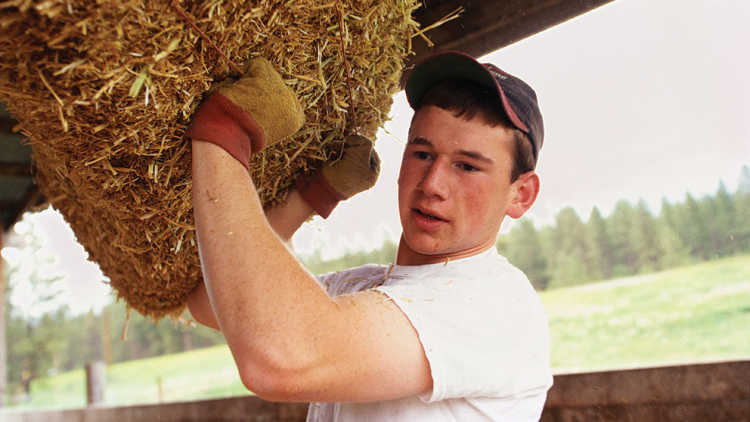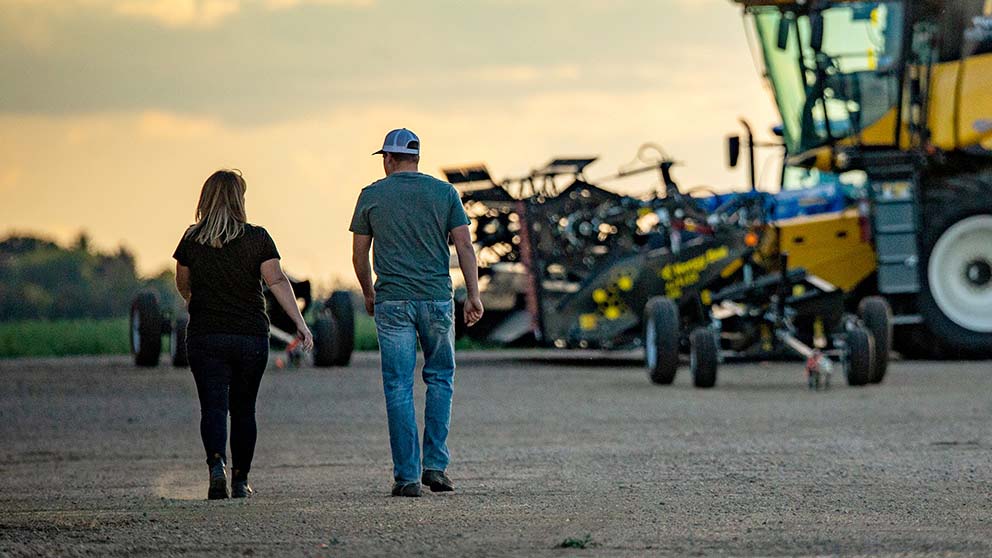Boosting mental health improves overall health

There’s no doubt stress affects mental health, from impacting concentration and decision-making abilities to causing severe anxiety and depression.
The big picture
Former Do More Agriculture Foundation executive director Adelle Stewart explains that mental health is encompassed in a larger picture, and the pillars to total wellness need to be recognized.
Mental wellness requires a balance of physical, emotional, spiritual and social attention.
“Living and working on the farm, our physical health needs are often met, but total health encompasses more than resistance training and elevated heart rates,” Stewart says. “Achieving a consistent return to mental wellness requires a balance of physical, emotional, spiritual and social attention.”
She says it’s also important to know that everyone floats between mental wellness and mental stress, usually daily.
“One in five individuals will fluctuate to mental illness in their lifetime,” Stewart says.
Tips for mental well-being
That makes it important to look after mental health before there’s a problem. Stewart says because people are social creatures, quality interaction with others is a good idea.
“Whether it is taking a pause to eat a meal as a family, or attending morning coffee at the local shop - ensuring to spend some quality time on a social level with family and friends is a great first step to creating a supportive network,” Stewart says. “Understandably, a lot of our work as producers is done solo, so making meaningful interactions can help get us through as well.”
Early recognition of undue stress can also go a long way in maintaining mental health.
“Often times, it is our loved ones who will notice a decline in our total health, before we do,” Stewart says. “Be sure to listen if someone asks and reach out if you need.”
Gerry Friesen is a conflict and stress management expert for Backswath Management. His top piece of advice to protect personal mental health is to be self-aware of the effects of stress and be aware of personal behaviour.
He adds setting realistic expectations, not ignoring issues as they come up, avoiding isolating and talking about what’s going on are also important steps.
“If we talk about it, it takes it out of our head,” Friesen says. “When we verbalize thoughts, it’s not as bad as we think and it’s surprising how we can quit stewing about them.”
Other tips Friesen offers include:
taking the third person approach to look at issues
practicing positive self-talk
being aware of tolerance levels
laughing more
being mindful of what causes stress and minimizing exposure
finding your happy place
thinking positive
Find what works for you
There are many tips and techniques to manage stress, but no one way works for everyone. The key, Stewart says, is exploration and finding what works, even if it’s new.
“Try it, you might like it, but if you don’t, remember to keep trying,” Stewart says. “The key is to keep searching for your own solutions.
But, Stewart stresses, reach out if there’s a feeling of being out of options. Resources are available on the Do More Agriculture Foundation website, including national, provincial and regional supports to help.
Bottom line
Total wellness includes mental, physical, spiritual and emotional health. Taking care of all these aspects can help manage stress and protect mental health. Experts say to look after mental health before there’s a problem and recommend deliberate inclusions of social time, practicing positive self-talk and positive thinking.
Article by: Trudy Kelly Forsythe

Filling your farm team’s gaps in soft skills like communication, teamwork, etiquette and attitude can be more of a challenge than addressing wanting areas of traditional farm work.
